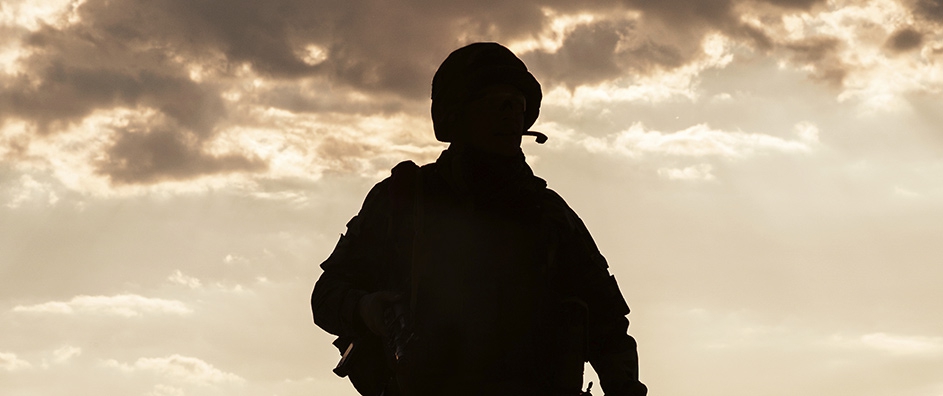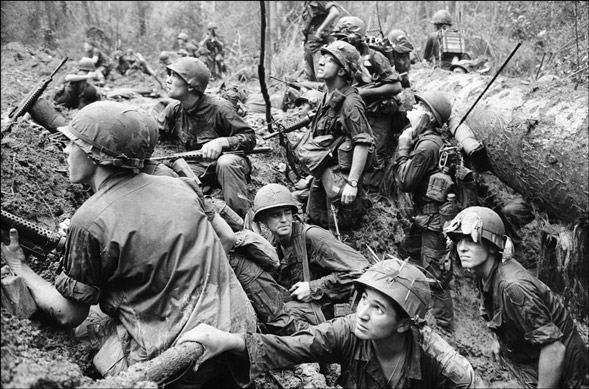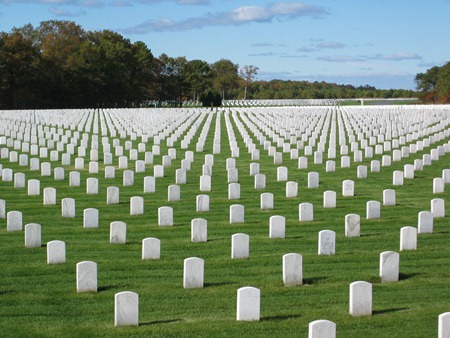The views expressed in our content reflect individual perspectives and do not represent the authoritative views of the Baha'i Faith.
Thinking about joining the military? I wouldn’t recommend it, but I can tell you, at least from my own experience, what to expect if you go to war.
Only people who have gone through a war can tell you what it’s like. But here’s the problem: no one experiences war like anyone else–and the people who truly experience it don’t live to tell about it.
Personally, I got lucky, and emerged physically unscathed from fourteen months of the war in Vietnam. Not a scratch. Oh, I had close calls. Many, many times bullets flew past so close I could hear them whiz by. That’s a sound you never forget, your own death missing you by a few inches. A mortar round almost got me one day. Another time I was in a helicopter that took fire and had to make an emergency landing, and all four of us barely made it out in time—another second or two, and you wouldn’t be reading this. One night a large Russian rocket landed within a few feet of me. It dug a deep furrow in the ground, but somehow, miraculously didn’t explode, a dud.
After all that the guys in my platoon started touching my helmet for luck before we went into combat.
So I was extremely fortunate, right? If that helicopter would’ve crashed, or those bullets would have found me, or that rocket would have exploded, I’d have died then and there. Or was I lucky? Sometimes in the midst of combat I thought, forgive me for this, that those who died got the better deal. They went on to the next world with some of their soul intact, maybe. They didn’t have to keep fighting. They lost the enormous fear of death every soldier carries. They weren’t required to shoulder the anguish and the pain and the burden of all that massive evil anymore. The rest of us had to keep going, on a forced march through a human hell.
If all this wartime risk-taking sounds somehow kind of daring and rakish and worth it, well, no, it’s not anything like that. Perish the thought. War contains enormous risk, yes, but absolutely no reward. War is mud and terror and absolute horror. War is boredom and sheer agony and profound loss. War is sobbing and blood and viscera. War is the absolute end of the world; the end of humanity; the end of joy and innocence and the ability to love. War will kill you, if not physically at least psychically or mentally or spiritually. If it doesn’t kill you it will leave you grievously wounded, with your leg or a part of your skull or your hand blown off, with your eyes or your conscience or your kindness blinded, with your faith in others shredded and destroyed and mangled and bleeding into the dirt.
I try to tell young people what war means, attempt to describe the horror, but I always wonder if I’m doing it justice. No matter what I say, it doesn’t seem to always get through. Maybe that’s because we’re so conditioned by movies and video games and the crazy idea that war is somehow heroic. It isn’t:
How savage and fearful the ferocity of man against his fellowman! …Even the wild beasts and ferocious animals do not commit such acts. The most ferocious wolf kills but one sheep a day, and even that for his food. But now… one man destroys ten fellow beings. The commanders of armies glory in having killed ten thousand men, not for food, nay, rather, for military control, territorial greed, fame and possession of the dust of the earth. They kill for national aggrandizement, notwithstanding this terrestrial globe is but a dark world of grossest matter. It is a world of sorrow and grief, a world of disappointment and unhappiness, a world of death. For after all, the earth is but the everlasting graveyard, the vast, universal cemetery of all mankind. Yet men fight to possess this graveyard, waging war and battle, killing each other. What ignorance! – Abdu’l-Baha, The Promulgation of Universal Peace, p. 395.
How grievous it is to see how man has used his God-given gift to frame instruments of war, for breaking the Commandment of God ’Thou shalt not kill’, and for defying Christ’s injunction to ’Love one another’.
God gave this power to man that it might be used for the advancement of civilization, for the good of humanity, to increase love and concord and peace. But man prefers to use this gift to destroy instead of to build, for injustice and oppression, for hatred and discord and devastation, for the destruction of his fellow-creatures, whom Christ has commanded that he should love as himself! – Abdu’l-Baha, Paris Talks, p. 42.
I promise you, war is the very worst thing that can happen to anyone. Soldier or civilian, young or old, man or woman or child, you would do well to put as much distance as possible between yourself and war.
That, in a nutshell, expresses the first reason not to kill anyone: because, in war, you’re just as likely to die yourself. In combat, that’s the whole idea—I try to kill you before you can kill me. This equation didn’t work out so well for millions of war dead. You’ve seen pictures of the veteran’s cemeteries with acres and acres of graves? I rest my case.
You May Also Like
Comments



















After the operation, he shared with everyone that while he was sedated he had vivid recall of his experiences in the war, and he was convinced that the scars in his gut were a direct result ...of keeping his emotions bottled up for so long. The veterans of that war came home to parades and accolades - and a tacit understanding that they were not to upset the apple cart by speaking the truth of the horrors they experienced. He began reaching out to other veterans (especially of his generation) and encouraging them to break their silence and begin healing as he had.
He began eating with gusto all of the things he had been unable to eat before, even Steak N Shake chili (something he'd pined for). He lived another 15 years, years he would not have had I think if he had not let go of the pain inside.
Years later, I tried - unsuccessfully, it ...turns out - to show one of my sons what was like by taking him, over the strong objection of his mother, to see Steven Spielberg's Academy Award winning movie, Saving Private Ryan. Neither of us could stand more than the first 30 minutes for different reasons. To me, it was too uncomfortable. For him, it was just World War II movie and he had no interest in it. Years later, he joined the Army and would be sent to a different war zone. The military learned a thing or two about survival in war and he, too, returned from a tour of Afghanistan with his body in tact.
Young people need to understand that war is not a good thing. And it proves/changes nothing. The message may not get through - popular games and media do paint an unrealistic picture - but we must never stop trying. Someone, somewhere might hear.
You don't make peace by making war on warriors. You make peace by making peace.